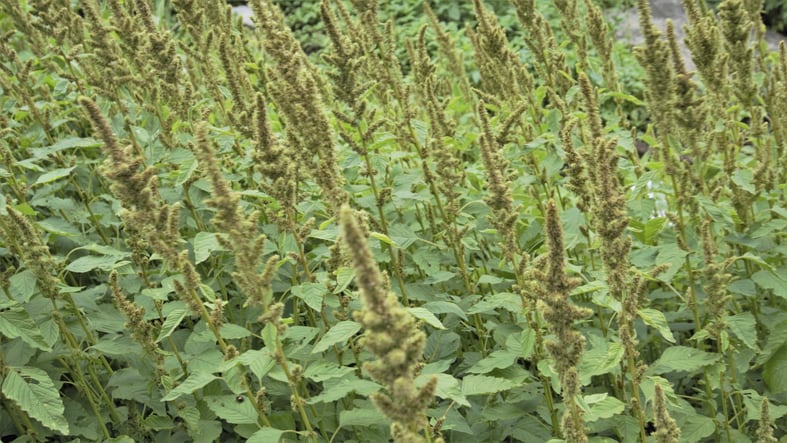Israeli start-up WeedOut has secured US$8.1 million in A-round funding. Fulcrum Global Capital, an US agri-focused VC with ties to farmers across the US, led the round.
Other participants in the equity round included Bunge Ventures, the investment arm of the agriculture and food company Bunge, and the Singapore-based agrifood tech fund Clay Capital (formerly VisVires New Protein). The new funding is in addition to several grants received by the company from the Israeli Innovation Authority.
The start-up hopes the new capital will advance its mission to combat weed resistance through its breakthrough green solution, it said, which hopes to solve one of the greatest threats to agriculture and food security: herbicide-resistant weeds. The company has created a novel and environmentally conscious approach to significantly curbing proliferation of weeds that no longer respond to commonly used chemical herbicides.
“Resistant weeds that plague crops are a major challenge for farmers globally – and the situation has only worsened,” said Kevin Lockett, partner at Fulcrum Global Capital. “Fulcrum Global is excited to support WeedOut’s cutting-edge biological platform and the unique approach it has pioneered to address the resistant weed problem. The company’s integrated management approach aligns seamlessly with existing farm practices and could enable growers worldwide to produce more food on the same amount of land and in a much more sustainable way.”

The first target
“Weeds are highly competitive, aggressive plants,” explained Efrat Lidor Nili, PhD, co-founder and co-CEO of WeedOut. “They compete with crops for all essential resources, including soil, water, nutrients – and even sunlight. Weeds substantially reduce crop yield.”
The company’s first target is the Palmer amaranth weed (Amaranthus palmeri), a major nuisance in the US, Brazil, and Argentina. The weed can grow up to several meters high and invade fields of corn, cotton, soybeans, and sugar beets. It can crash corn crop yield by 90% and soybean yield by 80%. “Our green solution specifically targets this type of resistant weed,” said Nili.
The prolonged use of chemical herbicides, such as glyphosate, has enabled the destructive weeds to develop multiple resistance, the company claimed. Nicknamed ‘super weeds’, the traditional method for countering them has been chemical herbicides.
“Evolution is always smarter,” added Nili. “The weeds learn ways to evade the effects of the herbicides. But WeedOut is applying an entirely new, green approach that targets the reproductive system of resistant weeds and will provide a sustainable, long-term solution.”
Novel approach
The novel method takes inspiration from sterility techniques used successfully since the 1940s for controlling populations of unwanted insects, such as mosquitoes and flies. It centers on a proprietary weed pollen derived from the male plants. This sterile pollen fertilises the female weed ovules, yielding nonviable seeds and effectively impeding the growth of a new generation of resistant weeds.
Since the introduction of the sterility technique 80 years ago, the realm of insect control has not encountered any resistance issues, and it is considered one of the safest methods ever developed. WeedOut claims it is the first to apply this time-tested method to weed control.
Funds raised in this investment round are being channeled expand field trials across the US covering cotton, soybean, and sugar beet fields in multiple regions in the US, including Georgia and Nebraska, as WeedOut moves to launch its inaugural product targeting the Palmer amaranth weed.
The company recently submitted a request to the Environmental Protection Agency for marketing approval and is developing new formulations targeting different weed species.
A new fruitful era
“WeedOut effectively targets the innately complex reproductive system of the plant, not just one enzymatic pathway,” added Orly Noivirt-Brik, PhD, co-founder and co-CEO. “This approach makes it almost impossible for the weeds to develop resistance. As the weeds are treated with pollen, our method is designed to work in harmony with the ecosystem and to avoid threats to the food crop.”
By enabling farmers to integrate a biological approach with traditional methods, the company claims to be redefining weed management strategies. “Our products will dramatically enhance crop yields while simultaneously minimizing dependency on chemical herbicides,” claimed Noivirt-Brik. “We envision our technology being widely adopted for multiple crops and serving as a key solution in the battle against resistant weeds. WeedOut will make a vital and meaningful contribution to agricultural practices and food security, worldwide.”





